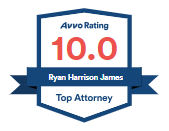A Practice Built on Understanding the Record — and the Law — at Its Deepest Level
Not every criminal-defense lawyer handles appeals. Even fewer understand them.
Appellate and post-conviction work requires a different mindset, different skills, and a different relationship to the trial record.
For nearly 14 years, Attorney Ryan H. James has represented individuals in direct appeals, PCRA litigation, and complex post-verdict motions in courts across Pennsylvania. This work is not volume work. It requires patience, precision, and an honest understanding of what appellate courts actually look for.
An appeal is not a “re-do.”
A PCRA petition is not a second trial.
Both require disciplined legal judgment — and a commitment to getting the record right.
Our firm takes on appellate and post-conviction matters that raise significant legal issues, involve constitutional error, or require careful review by an attorney who understands how trial decisions affect the outcome on appeal.
What Makes an Effective Appellate Lawyer?
A strong appellate advocate must:
- understand the entire record, from preliminary hearing to post-sentence motions;
- identify issues that matter — and discard those that do not;
- know the standards of review cold;
- shape a compelling legal narrative grounded in the facts;
- preserve credibility with the court by arguing only what is legally viable;
- integrate deep trial knowledge with appellate reasoning;
- write persuasively, clearly, and concisely.
An appellate brief is part legal argument, part storytelling, and part credibility.
We take that obligation seriously.
Direct Appeals in Pennsylvania: A Focus on Issues That Matter
Most criminal convictions in Pennsylvania are reviewed by the Superior Court. Direct appeals often involve:
- sufficiency of the evidence,
- weight of the evidence,
- improper admission or exclusion of evidence,
- suppression rulings,
- jury instruction errors,
- improper sentencing decisions,
- constitutional violations affecting trial fairness.
But not every error is “reversible.”
A successful appeal requires the ability to distinguish an error from a harmful error — and to demonstrate precisely how that error affected the outcome.
In direct appeals, we carefully review:
- the trial transcript,
- suppression hearings,
- pretrial motions,
- evidentiary objections,
- offers of proof,
- post-sentence motions.
Appellate courts expect clarity, not volume.
Meritorious issues must be identified and articulated with precision.
That is the core of our appellate practice.
Post-Conviction Relief Act (PCRA) Litigation
PCRA litigation is unique. It provides relief only under narrow circumstances, including:
- ineffective assistance of counsel,
- newly discovered evidence,
- unlawfully induced guilty pleas,
- illegal sentences,
- Brady violations,
- government interference with rights,
- jurisdictional defects.
These claims require far more than citing the statute.
They require:
- a deep understanding of Strickland and Pennsylvania’s three-part Pierce test for ineffective-assistance claims ;
- evaluation of whether trial counsel preserved or waived issues;
- review of trial strategy and whether counsel’s actions were reasonable;
- locating and interviewing witnesses;
- obtaining digital, forensic, or scientific evidence that may not have been developed;
- presenting evidence at PCRA hearings;
- drafting detailed findings of fact and proposed conclusions of law.
Many PCRA cases fail because they are poorly developed.
Our approach is different:
We treat PCRA litigation as its own form of trial, requiring investigation, record-building, and meticulous attention to detail.
Why Trial Experience Matters in Appellate Work
Many appeals fail because trial lawyers did not preserve issues.
Many PCRA claims fail because appellate lawyers do not understand the trial strategy behind decisions made in the courtroom.
Because our practice includes serious trial work, we know:
- which objections should have been made,
- how to evaluate trial strategy,
- what issues were preserved,
- what issues were waived,
- how trial counsel’s decisions will be viewed through Strickland,
- how to position a case for appeal even before conviction.
Trial experience is not optional in appellate practice — it is essential.
Our clients benefit from our advocacy, which bridges trial and appellate skills seamlessly.
Strategic, Honest Assessment at Every Stage
Appellate and post-conviction cases are not about false hope.
They are about disciplined evaluation of:
- what went wrong,
- what can be proven,
- what is legally viable,
- what is strategically sound.
We provide clear, candid assessments — not recycled, boilerplate, or empty promises.
Our job is to tell clients what is possible, what is likely, and what is not, and then pursue the legally strongest path forward.
Who We Represent
We handle appellate and post-conviction matters for:
- individuals convicted of serious felonies, clients facing long sentences who seek review or modification,
- families seeking justice for loved ones,
- individuals whose trial counsel failed to preserve or litigate key issues,
- defendants with newly discovered evidence,
- individuals with federal convictions seeking review in the circuit courts and United States Supreme Court
We also serve as appellate counsel for other lawyers, including trial counsel seeking assistance in preserving or litigating issues beyond trial.
Our Approach to Brief Writing and Oral Argument
Every appellate brief filed by this firm is researched and written with the understanding that:
- Appellate judges have limited time.
- Credibility is currency.
- The record must be respected.
- Precision matters more than volume.
We present issues clearly, develop arguments thoroughly, and structure briefs to engage the court rather than overwhelm it.
Where oral argument is granted, we enter the courtroom prepared to answer difficult questions, refocus the panel on the issues that matter, and advocate with clarity and discipline.
Appellate and Post-Conviction Work Across Pennsylvania
Our appellate practice extends across:
- the Pennsylvania Superior Court,
- the Commonwealth Court of Pennsylvania
- the Pennsylvania Supreme Court (discretionary review),
- the U.S. Court of Appeals for the Third Circuit,
- the Supreme Court of the United States.
We regularly accept matters throughout Western and Central Pennsylvania, and—where the legal issues demand it—across the Commonwealth.
If Your Case Needs Serious Appellate or Post-Conviction Review
A conviction does not end the case. It begins a new phase of litigation that requires a different kind of lawyer — one who understands the record, the law, and the strategy required to pursue meaningful relief. To discuss your case, fill out the form or call 412-896-1349.
Contact James Law, LLC: serious appellate and post-conviction representation across Pennsylvania.
The use of the Internet or this form for communication with the firm or any individual member of the firm does not establish an attorney-client relationship. Confidential or time-sensitive information should not be sent through this form. This site is protected by reCAPTCHA and the Google Privacy Policy and Terms of Service apply.















